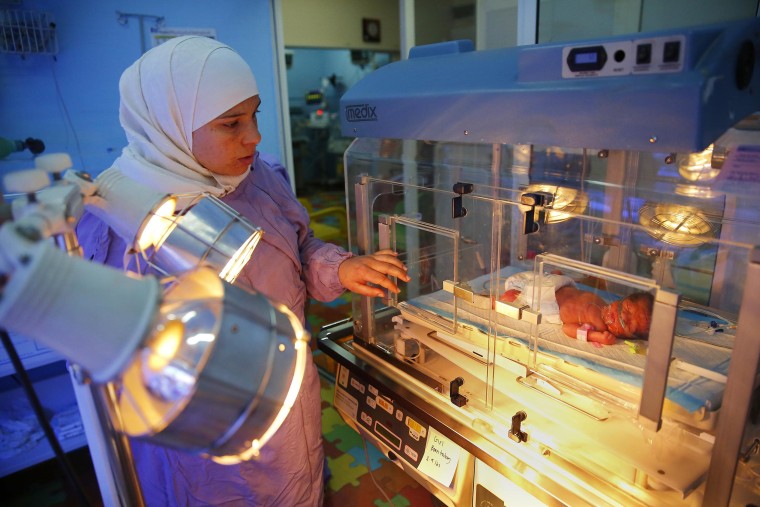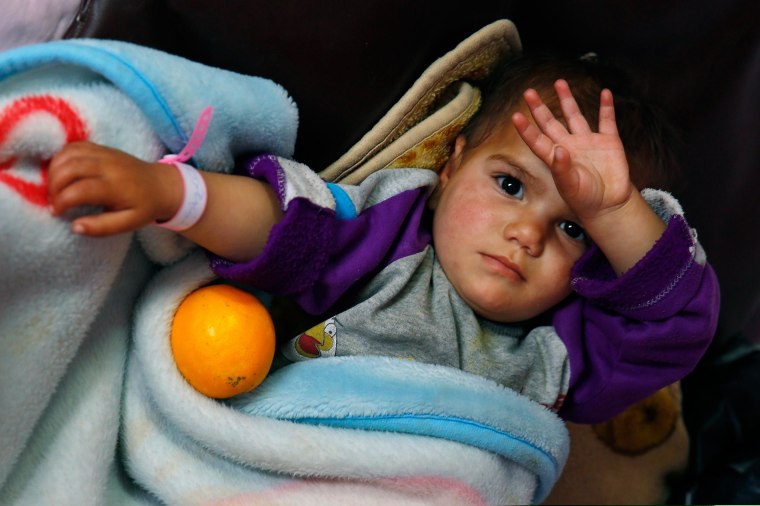
Just hours after NBC News' 48 hour live documentary on the children of Syria, a newborn whose twin died in childbirth met the same sad fate, a cruel reminder of the cycle of sorrow and loss that plagues the Syrian refugees in Lebanon.
Ahed Hussein was 7 months pregnant when she walked into Taanayel Hospital in Lebanon, ready to give birth to twins three miles across the border from Syria, where three years of civil strife have decimated the medical system, leaving pregnant women and children with little or no care.
What started as a routine cesarean section quickly became a hurried, vaginal birth without pain medication. The first infant was a nearly 3-pound girl, who wasn't breathing and had to be resuscitated. The second had severe birth defects — a complication all too common for this refugee population lacking effective prenatal care.
In the early afternoon, doctors told 18-year-old Ahed that her second baby had died. But the first, Baby A, was alive. She named her Mais.
Within days, though, the situation worsened. Mais had respiratory distress and internal bleeding. Doctors tried to resuscitate her, but could not.

Meanwhile, there was more news for the mother of 19-month-old Nevine, who had been suspected to have the first case of polio among Syrian refugees in Lebanon.
Nevine arrived at Taanayel Hospital partially paralyzed, one of the signs of the highly infectious disease that has resurfaced in Syria, though it is easily prevented by a common polio vaccine. Tests were sent to Cairo as officials from the World Health Organization and others examined her, and she was isolated from other patients.
After the NBC News documentary was complete, we stayed behind as Nevine had an MRI of her brain. Doctors found bleeding, and suspect it could be the cause of her paralysis.
And though final results from polio tests are not in — and it can't be ruled out — they update her anxious mother, Fatima Almasre. Dr. Zaher Haidar said he is cautiously optimistic that Nevine will walk again, and the mother was visibly emotional.
"God willing she will walk and be much better than this," Fatima told NBC. "Her hand and leg have improved. Every day is better than the last."
NBC Senior Medical Producer Ami Schmitz contributed to this report.